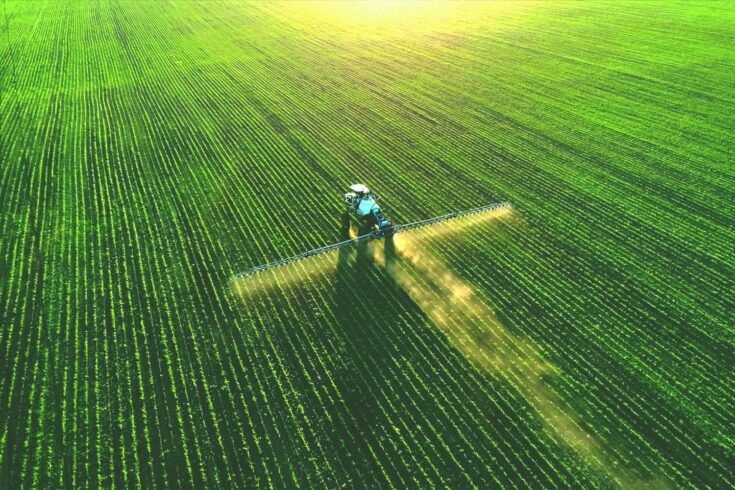To mark World Food Safety Day today, BBSRC is bringing together insights from across science, business and society to ensure safe, sustainable food for all.
In what might seem a divided world we all have one thing in common: the need to eat.
Safe, healthy food is vital for a healthy society, but there are constant challenges around assuring food safety and standards.
Food safety challenges
Some of these are obvious. We need to minimise the impact of disease and protect those with allergies and intolerances.
But others are more complex, such as those posed by:
- climate change
- long supply chains
- changing markets
- new agricultural techniques
- shifting consumer trends.
In this context creating a robust, healthy food system, that is also ethical and sustainable, is going to be one of the major challenges of the 21st century. The UN Climate Change Conference (COP26) in November this year will focus attention on this issue.
For example, how do we replace synthetic, petrochemical-based, plastics, which have a huge environmental footprint but are very effective in preventing food contamination?
Interdisciplinary insights
The only way to meet these complex challenges is with an interdisciplinary approach, bringing together insights from:
- biology
- engineering
- social sciences
- economics
- the general public.
Funding this is a strategic priority for the Biotechnology and Biological Sciences Research Council (BBSRC).
BBSRC is committed to supporting research, ranging from developing better food safety advice to extending the shelf life of packaged salad.
Other critical factors
Through all of this it’s essential to understand that while technology is vital, there are other critical factors to consider.
What is scientifically possible may not always be practical or affordable and so finding the most appropriate interventions will require insights from across:
- academia
- business
- government
- the public.
Different approaches
Projects taking this approach range.
From the flagship £50 million UK Research and Innovation (UKRI) transforming UK food system Strategic Priorities Fund programme. It is led by the Global Food Security programme (GFS) and administered by BBSRC in partnership with:
- Economic and Social Research Council (ESRC)
- Medical Research Council (MRC)
- Natural Environment Research Council (NERC)
- Department for Environment, Food and Rural Affairs
- Department of Health and Social Care
- Public Health England (PHE)
- Innovate UK
- Food Standards Agency (FSA).
To the joint food safety workshop in October 2020 that was organised by:
- BBSRC
- ESRC
- FSA
- Food Standards Scotland.
There were representatives from:
- MRC
- Innovate UK
- PHE
- academia
- industry.
Involving the public
The recent citizen science for food standards challenges opportunity broadened out further to pioneer ways the public could be involved in building the evidence-base to inform policy decisions.
BBSRC recognises the importance of looking across the whole food chain to appreciate the risk and interconnection between people, animals, plants, and their shared environment across the world.
Professor Robin May, Chief Scientific Advisor, at the FSA says:
We’ve all experienced changes to the way we interact with food in the last year due to the impact of COVID-19, and some of these may have a more lasting impact than others.
It is key that we work together to find sustainable solutions that do not come at the expense of food safety.
Novel solutions
Professor Melanie Welham, Executive Chair of BBSRC says:
Ensuring the sustainable production, integrity and safety of our food are critical challenges and that require different disciplines to work together to develop new approaches and novel solutions.
The projects that we are supporting across BBSRC, and UKRI more broadly, are making really important contributions to this area. And we must also remember the perspective of the consumer – public dialogue around food is essential.
Dr Christian Reynolds, senior lecturer in food policy at the University of London says:
Involving the public in a real-world partnership with science can create real impact. We have got so used to a system where industry or government do the monitoring.
But citizen science can flip that on its head and engage otherwise marginalised groups with issues that matter to them around food.
For example, in helping understand levels of neonicotinoid pesticides in honey or issues around food fraud.
‘One health’ approach
Dr Alison Mather, Group Leader at the Quadram Institute and FSA fellow, says:
Only by taking this ‘one health’ approach can we really understand what is out there and what the risk is. Not only in terms of pathogens, but also anti-microbial resistance (AMR).
AMR and microbes don’t respect any borders: geographical, political, economic or species.
If we don’t know how they are evolving alongside wider social and economic changes, we cannot develop an appropriate intervention strategy.
Pool of talented individuals
Dr Ben Goodall, Research Coordination and Partnerships Lead, FSA, says:
Whilst the research outputs are important in their own right, studentships also create a pool of talented individuals who will go on to have a lasting impact on our food system through key roles in government, industry and academic research.
Many may find themselves as future policy and industry leaders, providing a robust science base to ensure evidence-led policy is at the heart of the UK food system for a long time to come.
Of course, in a world of limited resources, prioritisation is key. But it’s only by bringing in different insights – from scientists to consumers to traders and policymakers – can we hope to do this.
We all need to eat. We all need to be healthy. There are so may wins here – if we can work together and get it right.
Top image: Credit: moiseXVII/GettyImages

